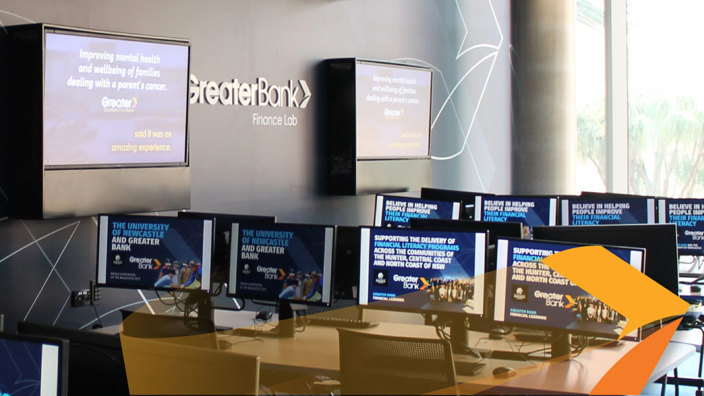
Greater Bank Finance Academy
Greater Bank and the University of Newcastle (UoN) have established a five-year partnership dedicated to building financial literacy across the region. We've combined our strengths in education and banking to deliver an educational program that supports informed financial decision-making.
The Greater Bank Finance Academy is a financial literacy program delivered to high school students across the Hunter, Central Coast, Central West and Northern regions of NSW.
With course content created by the University of Newcastle (theory) in partnership with Greater Bank (practical) the course is delivered by University of Newcastle student ambassadors and Greater Bank staff. The Finance Academy is integrated into various subjects across year 9 and 10 curriculum.
Finance Academy Lesson Plan
Core subjects
Introduction to Financial Literacy
What is financial literacy?
The Fundamentals of Financial Literacy
Why is financial literacy declining? How do we value money and what is our relationship with it? Physical money vs digital money.
Savings and Budgeting
Wants vs needs, savings strategies, current resources for tracking savings and budget.
Credit and Debt Banking
Loans and debt, credit ratings, tracking your account.
Electives
Investing
What does investing mean?
Cybercrime and scams
Online and in-person scams.
Employment
First job, tax returns and superannuation.
Benefits of the program
FREE
As like-minded community organisations, Greater Bank and UON have committed to providing this program free to the community.
Flexible
With four core lessons plus three optional electives, the program is easily tailored to suit your school.
Curriculum aligned
Finance Academy content is aligned to the NSW High School Curriculum.
Materials provided
All lesson plans, activities and presentation slides are provided to the teacher, with lessons 2 and 4 being delivered by UON and Greater Bank Ambassadors.
Hear from teachers who have experienced the program!
“The feedback has been overwhelmingly positive… and the students are actually looking to the future now with their savings.”
- Rory Dineen-Griffin, High School Teacher
Why does this program exist?
Almost half of young people (43% of 18- to 24-year-olds) reported they can’t meet their debt obligations*
Younger people (under 45 years old) struggle more with paying their bills on time and paying their rent or home loan when compared to older adults*
Younger adults (specifically 18 to 24-year-olds) have significantly lower levels of financial autonomy when compared to all other age categories*
*Source: survey conducted in 2021 by the University of Newcastle as part of our Financial Literacy Program.


